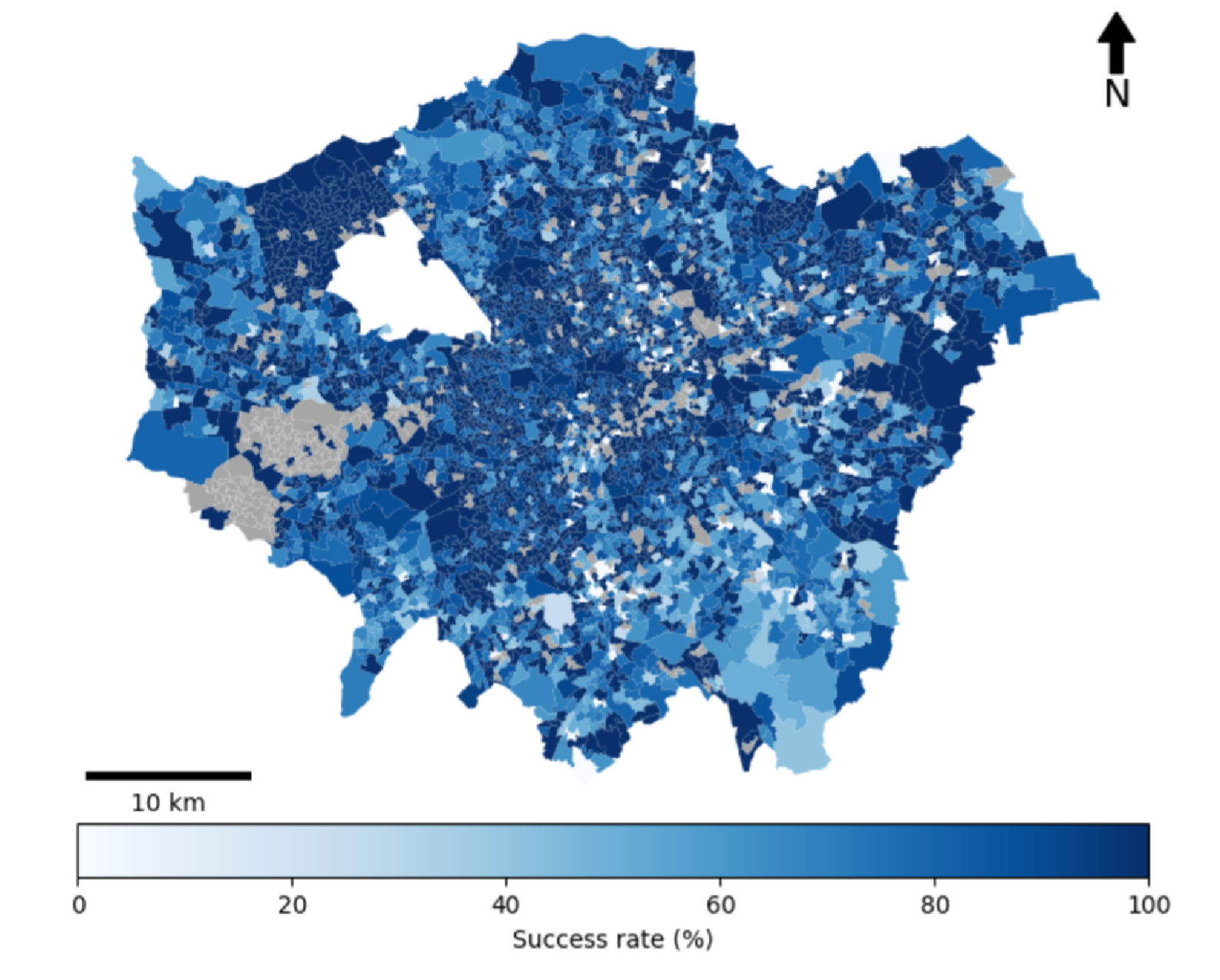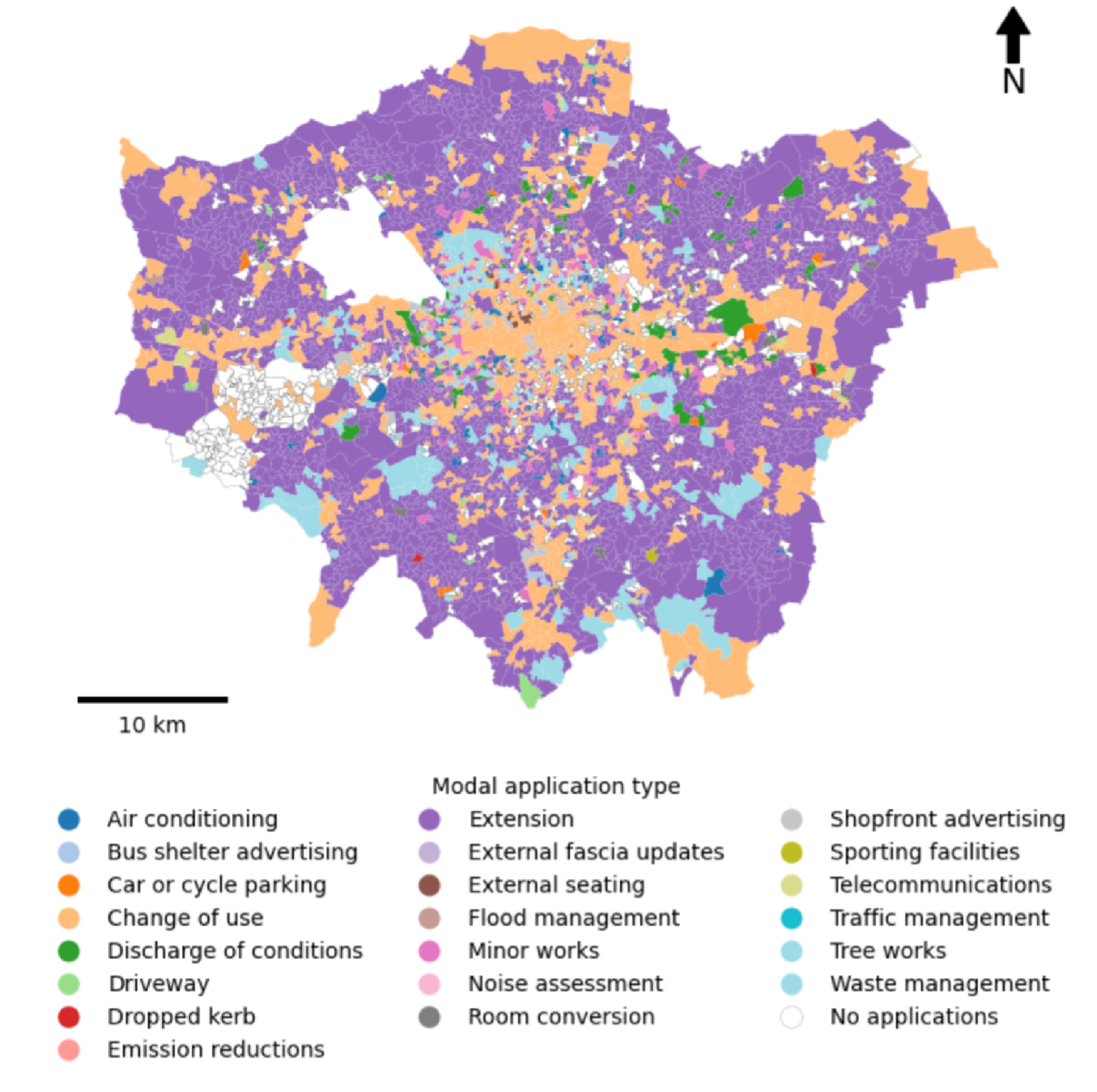This work, produced for my Urban Data Science and Analytics Masters dissertation, scraped over 30,000 planning applications from London planning authorities. It uses the applications to understand how the quantity and success rate of applications vary spatially amongst London LSOA and planning authorities, and whether such variation is associated with geodemographic characteristics. It also identifies the spatial distribution of different application types and ascertains the factors that affect the odds of a successful outcome of a planning application. The insights are discussed in the context of urban challenges and so the role of the planning system in mitigating or compounding urban challenges is evaluated.
Methods such as LDA and BERTopic topic modelling, KNN spatial clustering, Geographically Weighted Regression, Logistic Binary Regression, SVM, and Random Forests are employed.
Despite the importance of planning permission for development of the built environment and the mitigation of urban challenges, there is a lack of existing research examining the factors that predict a successful planning application. Using planning applications submitted to 33 London planning authorities, this project assesses spatial variation within the number of planning applications and the success rate of planning applications in London LSOA, and identifies the factors that predict a successful application.
Systematic distributions of the number and success rate of planning applications between LSOA are found, and statistically significant associations between the number and success rate of planning applications in an LSOA and geodemographic characteristics are identified. Modal types of planning application in LSOA are visualised, showing spatial variability. Finally, applications for non-intrusive works such as noise assessments are found to be the strongest predictors of planning application success. Results indicate that the planning system has the capacity to compound urban challenges, suggesting the need for standardised planning policy across London and wider reform and digitalisation to enable the planning system to mitigate urban challenges.
(L-R): Success rates of planning applications across London LSOA; Modal application type across London LSOA
Check out the Jupyter notebook or the written policy briefing. Data is available upon request.
- Website: callumscoby.com
- Twitter: @ScobyCallum
- LinkedIn: @callumscoby

